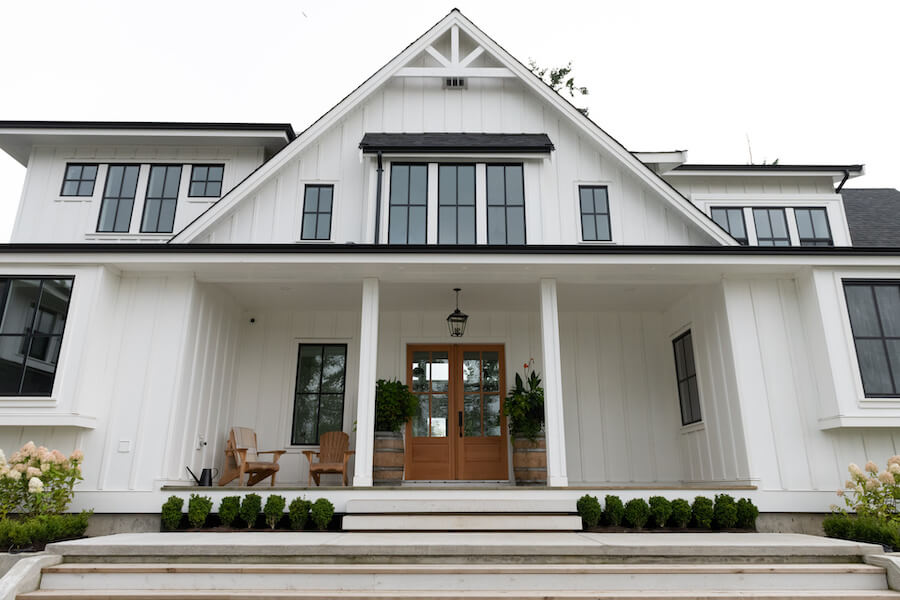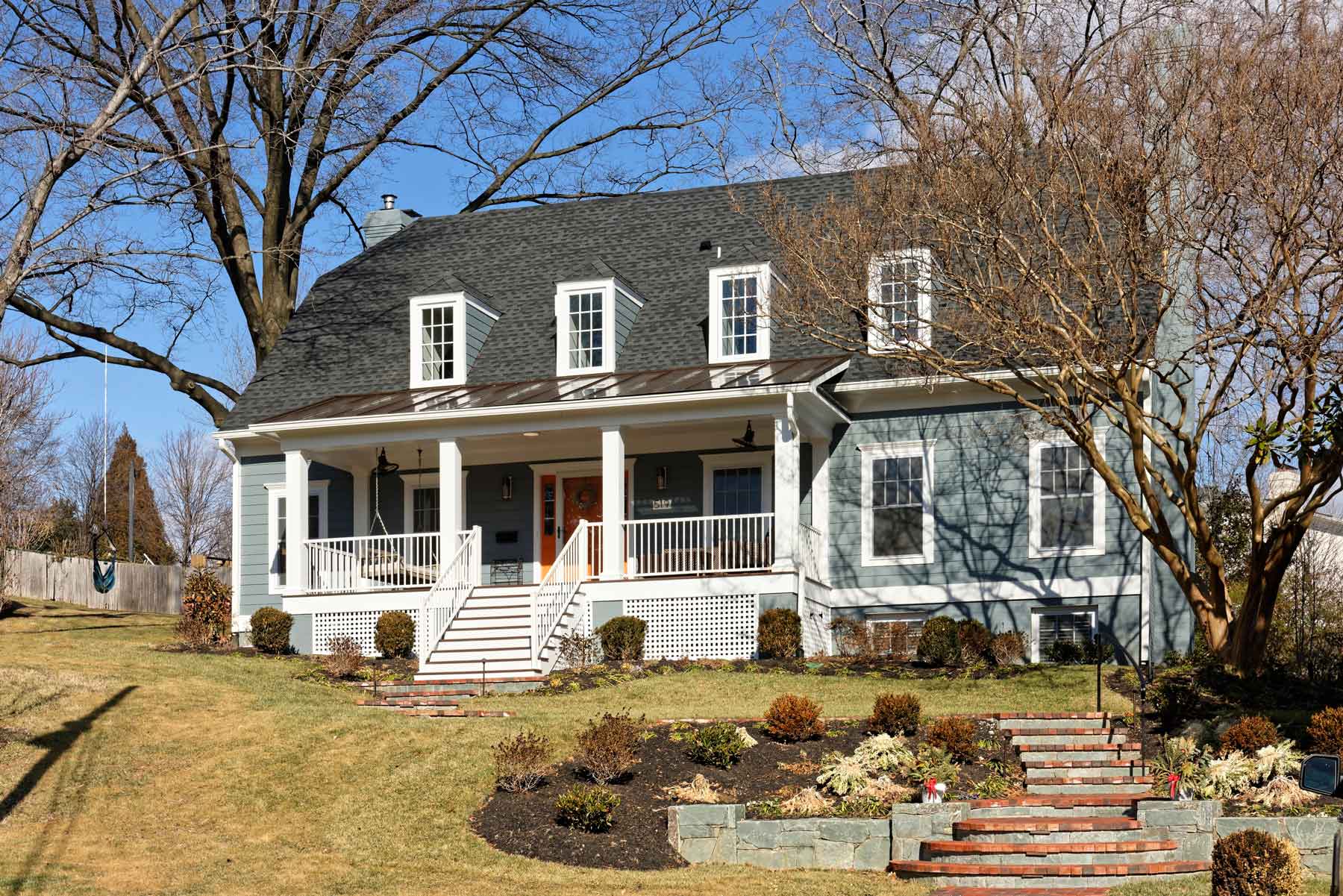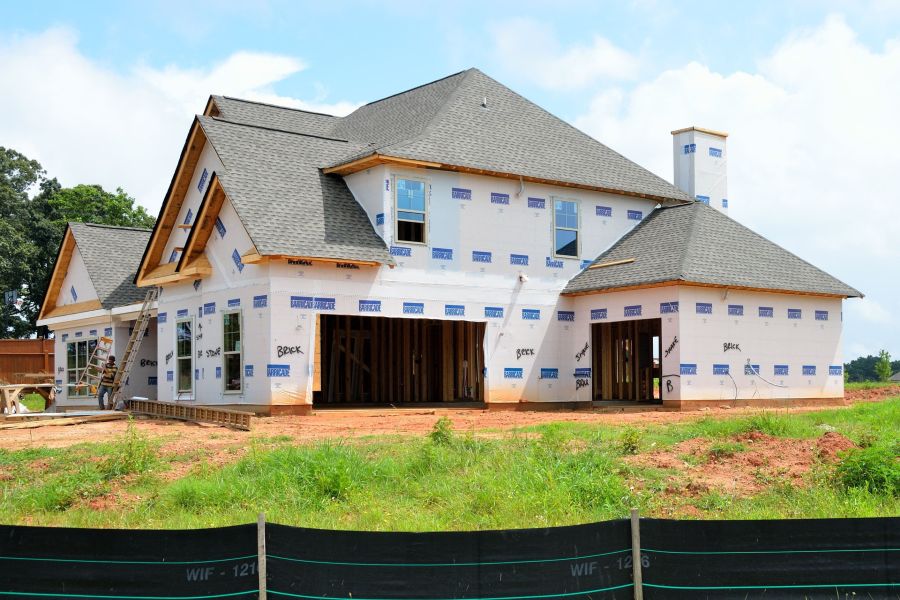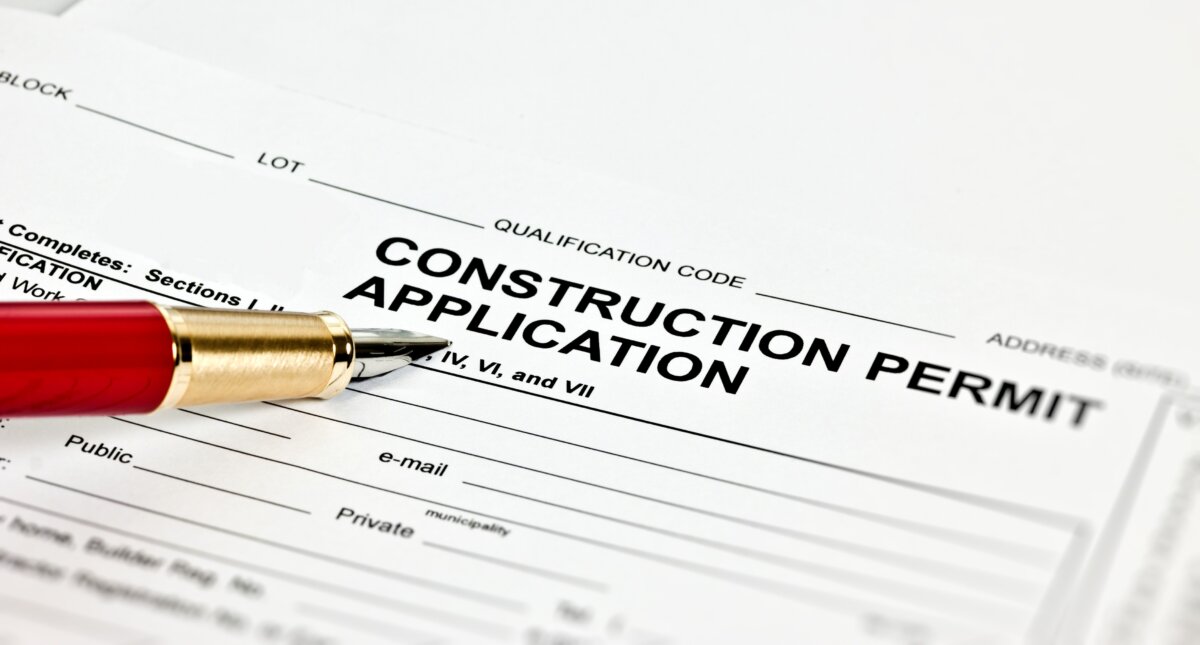
What Homeowners Need to Know about Building Permits to Avoid Problems
Building permits are not needed for every type of home improvement project. They are also not needed for many types of home repairs. However, building permits are legally required and essential to get for some types of home improvement projects.
For your own protection, you need to know when you need building permits and when you don’t. You also need to know who should take out the permit and who should not.
What Types of Projects Need Building Permits
The types of home improvement and home repair projects do and don’t need permits vary from location to location.
Generally, projects involving structural changes to your home need a building or specialty permit. This is because these types of projects involve safety, engineering, and environmental concerns. Also, if not done right, they can be dangerous and cause other serious problems.
What Types of Projects Don’t Need Building Permits
For some projects, you may only need an electrical, plumbing, or similar specialty permit.
Projects such as painting or minor repairs don’t generally require building permits. But it’s best to check.
Best Ways to Learn If You Need A Permit and What Kind
Your area may have an online resource listing the types of projects that do and don’t need a building permit. For example, Fairfax County has a page on its website about this topic. If you can’t find such a resource, the best way to find out is to contact your local building department. Explain what you plan to do, and ask them if a permit is needed. If so, find out what type. In the DC metro area, building departments are generally a department within your county or city government.
Some homeowners are concerned about calling their local building permit or building inspector's office. They worry their project will get logged and might trigger greater scrutiny. That’s not usually the case. Also, you can usually talk to a building permit office anonymously.
Next Steps for Building Permits
If you don’t need a permit, they will tell you. If they say your project will need a permit, you know you need to get one before doing the project.
If a building permit is required for your project, it is then a legal requirement you get a permit. It’s not optional. Getting a permit means the work will also need to pass one or more building inspections by the relevant building inspectors.
Not getting a permit when you are legally obligated to get one can cause serious problems and costs for you. It is a risk not worth taking.
Building Permits Require Inspections, and That’s a Good Thing for You
Building and related permits require inspections. Sometimes one inspection, sometimes several. Often there is an inspection during construction at the rough-in stage (usually before drywall is installed) and another when the work is finished.
Passing inspections gives you peace of mind that the work you paid for was done according to code.
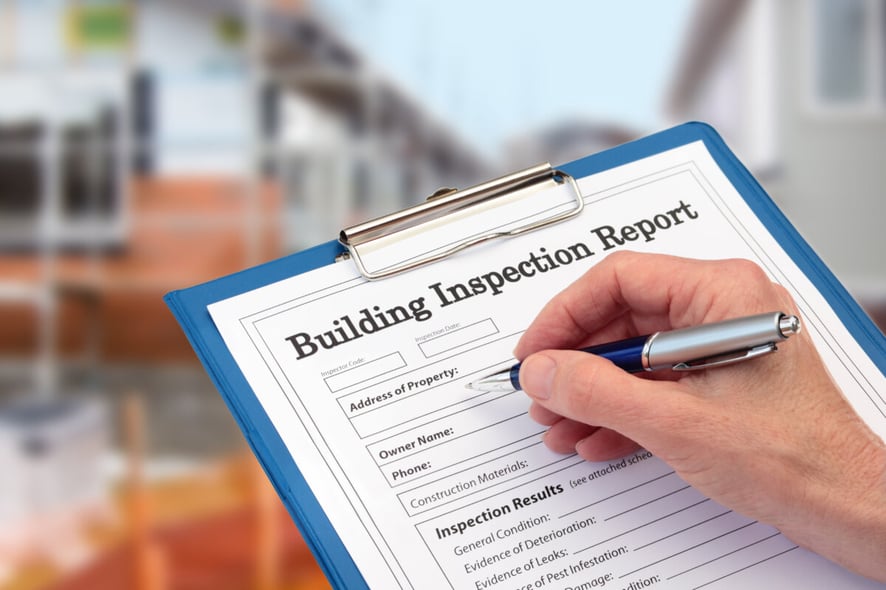
If for some reason, the work being inspected fails inspection, it is rarely a problem for you if you hired a contractor that pulled the building permit in their name. Why? Because the name on the permit is the one responsible for fixing anything that does not pass inspection. Worst case, your project may be delayed.
Why Some People Don’t Get Required Building Permits
People bypass getting a building permit for a variety of reasons.
Sometimes the contractor or homeowner wants to avoid paying the building permit fee or avoid the time needed to fill one out and file it.
Homeowners thinking of taking the permit out in their name are often wary. They fear the process is complicated, confusing, time consuming. Or that the form may be difficult for them to complete properly.
Getting a building permit automatically requires the work to pass a building inspection. Some people may be worried their project won’t pass inspection.
Some people are concerned getting a building permit for a home improvement might increase their property taxes.
The Risk of Not Having Building Permits
Not all these concerns are valid for all projects. Even when some are, the potential for serious problems are real. If you do not get the proper permits and don’t get the work inspected, the resulting costs can be enormous.
What Does a Building Permit Cost?
Costs of building and related permits vary from location to location. They could be $65 or several thousand dollars. The high end of the cost range is usually for new construction or very large home renovation projects. Generally speaking, the reasons permit costs vary within a local jurisdiction based upon the scope of work. It’s based upon the level of effort for the plans to be reviewed and approved. Building permit costs are also based upon the inspection time needed for different types and sizes of projects. You can usually get cost information online or by talking to your local permitting office.
How Authorities Discover You Didn’t Pull A Required Permit
Non-permitted projects get discovered all the time. Sometimes during the project, sometimes long after. It can mean trouble and higher costs for the homeowner than if a permit to do the project was obtained before the project.
Here are some of the ways building departments find out projects did not obtain required permits:
1) Building inspectors travel all over to inspect projects. They might notice contractor trucks or building materials on or near your property. Inspectors then might see if your home displays a building permit sign. Building permits must be displayed for most projects. If no permit is displayed, they may check their department’s permit database.
2) Sometimes a neighbor may complain about noise or other nuisances caused by your project. Or, that you are doing a project that they don’t believe has been permitted.
Risks in HOAs
If you live in a community with a Homeowner Association, someone on the architectural committee may notice the work. They may check if the work was approved by the association and check if it has a permit. Most homeowner associations require all work that legally requires a permit; get one.
4) Sharp realtors will often check tax records and building permits to check how a home they are selling has been upgraded since its initial construction. If they notice the home for sale has work not on the original plans that should have been permitted and inspected, but there are no records for the permits and inspections, this could cause issues with disclosure documentation homeowners often need to provide potential buyers.
5) If your home has a fire, the fire department may notice your home has work done that has no permit and inspection report on file. And if you file an insurance claim, your insurance company may see if a permit and inspections were done for your home’s project.
Who Should “Pull” the Permit and the Consequences
Pulling a building permit is the term generally used for applying for a building permit. Who pulls the permit can be very consequential. Here are some guidelines.
IF YOU ARE USING A GENERAL OR REMODELING CONTRACTOR:
If you are using a contractor for the work, have the contractor pull all the permits in their name. NEVER PULL THE PERMIT IN YOUR NAME. Why?
Because the person or entity pulling the permit is the one responsible for the work passing inspection. If a contractor suggests you can save money by pulling the permit in your name, that’s a red flag. Find another contractor. The small amount of money you might save is not worth the amount of effort and risk of pulling the permit in your name.
Chances are if a contractor suggests you pull the permit in your name, it is because:
- The contractor is not properly licensed for the type or size of work involved in the project in the state where the work is being done.
- They may lack the proper insurance to cover any mishaps or injuries.
- They are not a registered business in your state.
- They are not confident their work will pass inspection and
- They don’t want to be responsible for fixing any problems they caused if the project fails inspection.
IF YOU ARE ACTING AS A GENERAL CONTRACTOR AND USING SPECIALTY CONTRACTORS FOR SOME OF THE WORK AND YOU ARE DOING SOME OF THE WORK YOURSELF.
If you are doing some parts of the project yourself and if those parts don’t require a building permit you won’t need to get a permit for those parts. However, for parts of the project that need permits, and for which you are using specialty (trade) contractors to handle, such as a plumber, electrician, or HVAC specialist, you may be able to have the specialty trade contractors pull the trade permits in their names for their parts of the project. This approach is allowed in some jurisdictions and in some cases.
However, if the work you plan to do yourself requires a permit, you will need to pull that permit in your name, OR you may need to pull a permit that covers all the work on the project. It depends on the local rules about permits.
IF YOU ARE DOING ALL THE WORK ON THE PROJECT:
If you are doing all the work on your project and the project needs a building permit, you must pull the permit in your name. You can also pull the typical trade permits (HVAC, plumbing, and electrical) if you do that work yourself.
Risks of Not Getting a Required Building Permit are Significant
The risks and extra costs for not getting a building permit when one is required can be enormous.
1) Not getting a required building permit means you’ve broken the law. You could face a fine. If you are allowed to file a permit after the work has started, in many places, your costs to get the permit may be greatly increased.
2) Not getting a permit also means your project’s plans have not been reviewed and approved. Not getting a permit also means your plans are not getting reviewed for compliance with building codes, fire codes, structural integrity and safety, zoning, setbacks, easements, and other requirements*.
* Other possible issues when applying for a building permit are CCRs (conditions, covenants, and restrictions), usually from planned communities, subdivisions, homeowner associations, etc. These CCRs are restrictions in addition to your local municipal ordinances. Your plans need to meet these requirements to avoid violating your HOA or other neighborhood association agreements.
Some building departments may issue you a permit regardless of whether it meets certain CCRs relevant to your project. It is best to check with your relevant neighborhood or homeowner association if your home is subject to their rules.
3) Importantly, not getting a required building permit also means your project won’t get inspected. If not inspected, you could wind up with substandard work and potential problems that can cause a part of your home to have structural problems, a flood, fire, carbon monoxide poisoning, or other problems.
Tip:
Before planning your project, you or your contractor should check zoning, setback, easement, and other requirements from the building department and your relevant neighborhood or homeowner association (if any) to avoid having to redo your plans if the permit office or your homeowner association finds your plans non-compliant. Should your ideas for the project exceed what is allowed by zoning and other regulations, you can usually apply for a variance. Depending on what variance you need, you may get approval or be told to change your plans.
4) If your project does not have a building permit, you could face a fine and increased cost to pull the permit late, as we mentioned earlier. These things are the least of your worries. The building department may also rule that you must tear down some or your entire project, file a building permit, and start over. THIS DOES HAPPEN.
5) If you have a fire or other damage to your home or an injury and the damage or injury was caused by the part of your home that was worked on without getting the required permit(s) and inspection(s), not obtaining the building permit(s), and not getting the work inspected may give your insurance company cause for not paying some or all of your claim.
If the cause of the casualty was not the portion of the home where work was done without required permits and inspections, but that unpermitted part of the home was damaged, this too might be grounds to deny your claim for the part of the claim related to that unpermitted improvement.
Best Way to Avoid Problems Related to Building Permits and Inspections
Avoiding problems related to building permits and inspections is easy. Simply hire a reputable, licensed, insured, bonded, and experienced contractor with good reviews who pulls the required building permits for your project in their name.
You should also check with the contractor you hire and make sure in their contract with you it clearly states the contractor will pull all required permits in their name, get all inspections done, pass all inspections, and if their work does not pass inspection, you will not be charged for the expenses related to them fixing the problems needed to pass inspection.
When you work with Metro Building and Remodeling, we always pull permits, make sure your project gets and passes the required inspections and we never charge our clients extra for passing inspections.
Related Posts
- September 2016 (5)
- March 2019 (4)
- August 2019 (4)
- January 2020 (4)
- February 2020 (4)
- September 2020 (4)
- January 2023 (4)
- December 2023 (4)
- January 2016 (3)
- April 2017 (3)
- December 2019 (3)
- August 2021 (3)
- October 2015 (2)
- February 2017 (2)
- January 2018 (2)
- February 2018 (2)
- March 2018 (2)
- April 2018 (2)
- May 2018 (2)
- June 2018 (2)
- December 2018 (2)
- January 2019 (2)
- February 2019 (2)
- October 2019 (2)
- April 2020 (2)
- June 2020 (2)
- October 2020 (2)
- February 2021 (2)
- March 2021 (2)
- June 2022 (2)
- July 2022 (2)
- August 2022 (2)
- September 2022 (2)
- October 2022 (2)
- November 2022 (2)
- December 2022 (2)
- March 2023 (2)
- April 2023 (2)
- May 2023 (2)
- June 2023 (2)
- July 2023 (2)
- August 2023 (2)
- September 2023 (2)
- October 2023 (2)
- November 2023 (2)
- January 2024 (2)
- March 2024 (2)
- July 2024 (2)
- January 2015 (1)
- August 2015 (1)
- November 2015 (1)
- December 2015 (1)
- February 2016 (1)
- March 2016 (1)
- April 2016 (1)
- May 2016 (1)
- June 2016 (1)
- July 2016 (1)
- August 2016 (1)
- October 2016 (1)
- November 2016 (1)
- December 2016 (1)
- January 2017 (1)
- March 2017 (1)
- May 2017 (1)
- June 2017 (1)
- July 2017 (1)
- August 2017 (1)
- September 2017 (1)
- October 2017 (1)
- November 2017 (1)
- December 2017 (1)
- July 2018 (1)
- August 2018 (1)
- September 2018 (1)
- October 2018 (1)
- November 2018 (1)
- April 2019 (1)
- May 2019 (1)
- June 2019 (1)
- July 2019 (1)
- September 2019 (1)
- November 2019 (1)
- March 2020 (1)
- May 2020 (1)
- July 2020 (1)
- August 2020 (1)
- November 2020 (1)
- December 2020 (1)
- January 2021 (1)
- April 2021 (1)
- May 2021 (1)
- June 2021 (1)
- July 2021 (1)
- September 2021 (1)
- October 2021 (1)
- November 2021 (1)
- December 2021 (1)
- January 2022 (1)
- February 2022 (1)
- March 2022 (1)

